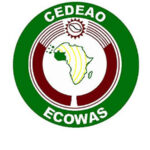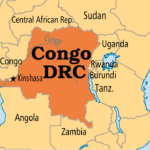
United States-based cryptocurrency expert and Chief Executive Officer, Paxful, Ray Youssef, speaks with TEMITAYO JAIYEOLA, on e-naira, cryptocurrencies and their impact on countries’ economies
How do you think the government of countries like Nigeria can explore Bitcoin?
The best option is for the government to accept any form of cryptos particularly BTC from people in exchange for naira. The government can ask people to go to every post office with their BTC or game card to collect naira. You get the people to work and collect BTC from them in exchange for the local currency.
It brings forex to the country and the government can put policies around it and by that act, it can put other people to work too. You can imagine it when 50 million youths are put to work through cryptocurrency, that will be a big transformation. The youths are already doing it, the government can only put regulations around it, and it will stabilise the economy of this country. You will be surprised that with this act you will watch the whole world following Nigeria.
The CBN’s restriction on cryptocurrencies drove traffic to P2P platforms like Paxful. Do you think a reversal of the restrictions will change the crupto market?
The volume might go down with reversal but that will be great. I think what the government should do is to embrace what the youths are doing. The greatest creator of opportunities is staring the government in the face.
Why do you think more people should invest in cryptocurrency?
I am not the best at investment advice. I created a platform using BTC technology to create an exchange for people to make money anywhere around the world. I tell people not to invest in cryptocurrency but buy BTC and learn how to use it. While the whole world created BTC, the CBN of different countries created their fiat currencies and they have control over it.
Nigeria is your biggest market, where do you see the market in the next five years?
The market for us and everyone in the space should grow to times five or ten of what it currently is. There are only a few things that will need to happen, we are doing a big push in education. We have built schools in Kaduna, and we are building another four schools in the south-west and south-east.
We have an educational center in Abuja and there is a lot more that still needs to be done to improve the adoption of bitcoin. When I landed here, the naira’s official rate was N415 but now I can’t believe what the market is saying and this is why more Nigerians are embracing cryptocurrencies like USDT, Ethereum, and BTC that will preserve their money because of inflation.
Some of the people coming to our platform have shown us that BTC doesn’t just have historic value but it is seen as a store of value. They see their money in the bank as in a prison. For instance, if you are in Nigeria and you want a credit card to buy something online in a global market, you will need to get dollar from the black market to fund it and anytime you are buying something with it, you pay at the official rate which means you lose half of it. But if you are friendly with the officials of CBN you can buy at the official rate and sell at the black market and double your money. What that means is what I called economic apartheid. BTC is a means of exchange, and you can have Paxful which is a global financial platform. This revolution should be taken to the mainstream, for us, it is not just an arbitrage market anymore, the tune needs to change.
How would you describe the peculiarity of the Nigerian market?
The Nigerian market is quite peculiar, especially with the users. Some people say it is difficult to survive in Nigeria, but it is still the biggest economy in Africa and her population has a lot to do with that, especially the youths which is the biggest selling point.
If you look at Nigerians that are outside Africa, they are overachieving in different fields which is a very peculiar thing and it is a great thing. The youths have done two things: they have actually stabilised the price of naira as they bring in more forex and they also bring in BTC and other cryptocurrencies. Through all these crypto activities they are not taking money out of this country, they use it here and earn more money. The peculiarity of the Nigerian market is that we have such a highly intelligent, energetic, and sincere youth population.
What do you think of the CBN e-naira?
The CBN e-naira is a good initiative for embracing blockchain technology, but it is still naira, and naira is rapidly depreciating. If the CBN wants it to get circulated it is very easy, it should get all the Points of Sales operators to apply for loans. They will receive a lot of applications that will get the e-naira into circulation, but the issue is that people don’t want the naira out there.
What are some of the challenges that Paxful is facing?
If you look at my Twitter account, you will see a number of people saying Paxful is holding their funds. A lot of these people are Nigerians and only a small number of them are involved in one illegal act or the other, so they have every right to complain.
We don’t take people’s money, we are an American company and we have a compliance guide. When the US government sees any irregularity, they will ask us to lock up the account and we must comply with regulatory agencies. We know that they will get their money back but why should they wait for a year because they lose if the price of BTC falls.
Something needs to change because that is our biggest problem right now. Issues like KYC are another challenge. Are you going to do KYCs for everybody when people come up with pieces of paper as a means of identification that is not even visible for anyone to read. Nigerians want to be verified but some people don’t just have the right ID.
What is the focus of your organisation’s foundation?
We are making more donations now than ever. We have built a total of 12 schools globally and we are building more schools in Nigeria. We already have two schools in the north, we are working on two schools in the west and two schools in the east. I personally want to build my first school gift to children somewhere here in Nigeria and I want it done within the next two years so it will be the best school in Nigeria.
How are you looking at using technology to fight cybercrime?
Our users’ accounts are not locked because of fraud but it is usually for compliance with the regulatory guide. Paxful needs to protect Nigerians from fraudsters. Some of these fraudsters come from places like China. They can lie that the gift card they bought from Nigerians is bad. The truth remains that most of the bad guys are not Nigerians and so we are trying our best to protect Nigerians.
What’s your message to some of the aggrieved subscribers on your platform?
Most of our users are happy. We may have about 0.5 per cent that may not be happy which can be traced to either fraud-related cases or anything else. When that happens those kinds of people are usually vocal. It is usually the gift card issue. You guys have no idea if a gift card code is good or not, the problem is that the gift card companies don’t have a public ledger where it can be verified; only a private ledger, and 98 per cent of gift cards in the world are from two American companies.
What advice do you have for youths on financial education?
Financial education brings empowerment and entrepreneurship. Nigerian youths are leading a financial revolution and Bitcoin has already scaled tenfold compared to other regions. We must foster that momentum—it will open Nigeria up to the global market, grow local businesses, expand opportunities for international freelancers, and lessen Nigeria’s reliance on international governments who threaten to devalue local commerce. Through Bitcoin, Nigerians will lead the whole of Africa into a financial golden age.
Bitcoin is more than just an investment asset. It’s proof of the power of Nigerians. With high education but unemployment standing over 30 per cent, you have shown the world how Bitcoin can forge a new path while strengthening a local economy. That’s empowering.
Paxful is created as a global peer-to-peer finance platform for people to make payments, transactions, and send money by buying and selling Bitcoin as a means of exchange. Paxful’s mission is to advance a truly global economy by building a financial system that serves the 100 percent, not just the one per cent. Over ten million people use Paxful to buy and sell Bitcoin with over 450 different payment methods—helping connect people to practically any financial network in the world.





